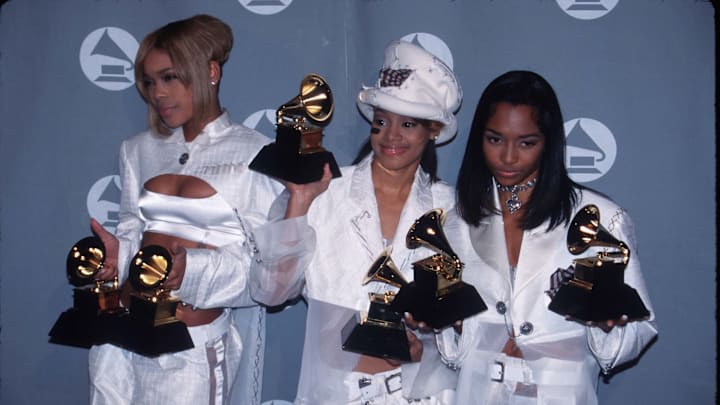1995 was a defining year for music across genres — a creative high point where classic sounds met bold innovation. Hip-hop was deep in its golden era, balancing East Coast lyricism and West Coast storytelling. R&B was soaring, emotionally rich, and vocally driven.
Meanwhile, pop and rock artists were experimenting with style, introspection, and genre fusion, pushing the boundaries of what the mainstream could sound like. It was a year when albums still mattered — not just for hits, but for the full journey.
Culturally, 1995 represented a moment of honesty and identity in music. Female artists were rising to the forefront with more control and creative freedom. R&B and soul were becoming more vulnerable, while rock leaned into grunge, post-punk, and alternative textures.
10 albums celebrating 30th anniversaries in 2025
Hip-hop wasn’t just growing — it was becoming the voice of a generation. Across all genres, artists used music as both expression and empowerment, with albums tackling love, loss, race, politics, and personal transformation.
Technologically, it was also one of the last great years of the CD era, when physical albums still shaped how people consumed music. That made the structure and sequencing of an album crucial — these weren't just playlists, they were statements.
From debut masterpieces to comeback records to genre-shifting soundtracks, 1995 produced albums that didn’t just define a year — they defined careers and, in some cases, entire eras.
TLC – CrazySexyCool
Though technically released at the end of '94, CrazySexyCool dominated 1995. It redefined what a girl group could be — confident, sensual, vulnerable, and bold. From “Creep” to “Waterfalls,” it blended smooth soul with gritty realism and set a new R&B standard.
2Pac – Me Against the World
Tupac’s most introspective album, Me Against the World, balanced anger, vulnerability, and political fire. Released while he was incarcerated, it reached No. 1 and gave the world one of the most poetic, personal hip-hop albums ever made.
Alanis Morissette – Jagged Little Pill
A breakthrough in emotional honesty, this album lets anger and pain have a voice, especially for women. Alanis brought raw alternative rock energy into the mainstream, making vulnerability a form of rebellion.
Mariah Carey – Daydream
This was Mariah at her creative peak — blending soulful ballads, hip-hop crossover hits, and vocal acrobatics. Daydream not only ruled the charts but also helped lay the groundwork for pop's embrace of R&B influence.
READ MORE: Sammy Hagar almost single-handedly ruins Black Sabbath farewell concert
D’Angelo – Brown Sugar
With Brown Sugar, D’Angelo helped birth the neo-soul movement. His debut was smooth, funky, and emotionally rich, marrying Marvin Gaye sensuality with hip-hop edge. It didn’t scream for attention — it whispered and seduced.
Radiohead – The Bends
Before OK Computer made them legends, The Bends showed Radiohead’s growth into melodic, emotionally layered rock. It blended Britpop and alternative moods with poetic lyrics, setting the stage for their experimental leap.
Bone Thugs-N-Harmony – E. 1999 Eternal
With melodic flows, dark beats, and spiritual themes, Bone Thugs created a sound all their own. E. 1999 Eternal was eerie, catchy, and deeply rooted in grief — a standout in '90s hip-hop that sounded like nothing else.
The Smashing Pumpkins – Mellon Collie and the Infinite Sadness
This double album was ambitious, emotional, and sonically vast. Smashing Pumpkins embraced orchestration, grunge, and glam all at once, delivering a project that was chaotic but unforgettable in its scale and scope.
Faith Evans – Faith
Her debut was warm, classic, and emotionally rich. Faith was a standout R&B album that combined church-trained vocals with hip-hop-influenced production. It didn’t get the shine it deserved at the time, but it helped shape Bad Boy's smoother side.
Various Artists - Waiting to Exhale: Original Soundtrack
This soundtrack was more than a companion to a film — it was a landmark for Black female artistry. With Whitney Houston, Toni Braxton, Brandy, Mary J. Blige, and more, Babyface curated an emotional R&B masterpiece that spoke directly to love, heartbreak, and sisterhood.
1995 was a watershed year for music, where artistry, emotion, and evolution met at the peak of creative freedom. These albums weren’t just hits — they were turning points, genre movers, and cultural blueprints.
Whether through political poetry, soulful truth, or genre-pushing ambition, they shaped what music could say and how deeply it could be felt. Thirty years later, they still echo — not just as nostalgia, but as testaments to the power of music at its most fearless and timeless.
